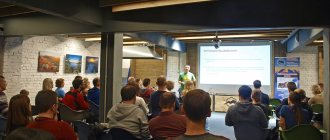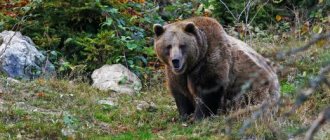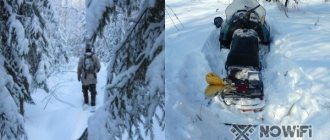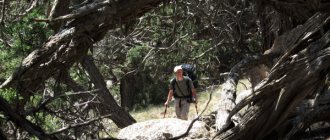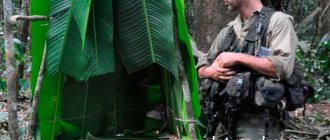To survive in the wild, you need to have a base of certain skills, know and be able to do a lot. With such luggage it will be easier to survive extreme situations. In this case, you need to have an idea of survival skills in autonomous conditions. When going for a walk in the forest, you should take with you warm clothes, a supply of food, water and vital items. Without careful preparation, the outcome of an active holiday can be disastrous.
Extreme and autonomous survival
A school subject that teaches the basics of survival - life safety. As adults, many do not remember the very basics, and it is completely in vain. It pays to prepare very well even for a short hike. Basic training includes knowledge of how to obtain food and water, build and maintain a fire, provide protection from weather conditions and wild animals, and provide first aid to yourself and another person.
By definition, survival is a set of actions to save oneself and others in an emergency or other dangerous situation. An autonomous situation differs from an extreme one in that it does not involve a thorough arrangement of everyday life. The traveler is required to be able to navigate the terrain, plot a route and obtain vital resources.
In extreme situations, the following problems usually arise:
- lack of food and water;
- the need to get fire and make a fire;
- the need for a structure for overnight accommodation.
If a traveler is prepared, he can easily cope with all these tasks. Otherwise, you may face failure. If something doesn’t work out the first, second, or even third time, the main thing is to remain calm, don’t panic, and keep trying.
Left alone with nature, it is necessary to maintain composure. The absence of fear and anxiety is the key to survival. Conversely, if you fuss and get nervous, you can worsen the situation, even when you have everything you need with you. At some point, food and water will run out, and then you will have to get it yourself, and in a state of panic it is unlikely that you will be able to act competently and thoughtfully.
A civilized person who has never found himself in such a difficult situation before cannot even imagine what he will have to face. Therefore, you need to acquire in advance all the practical skills that may be useful in an unusual environment.
4.1. general principles of survival
4.1. general principles of survival
It happens that, due to the will of circumstances, a person finds himself in a critical situation, alone with nature.
Often, until help arrives, those in distress have to exist autonomously. The basis for success in the fight against the forces of nature is a person’s ability to survive. Survival is understood as active, expedient actions aimed at preserving life, health and performance in conditions of autonomous existence. These actions consist of overcoming mental stress, showing ingenuity and resourcefulness, effectively using emergency equipment and available means, and meeting the body's needs for food and water.
The main postulate of survival: a person can and must maintain health and life in the harshest climatic conditions if he is able to take advantage of everything that the environment provides. But this requires certain knowledge and experience.
When a person finds himself alone with nature, there is always the danger of an emergency: loss of orientation, loss of team, vehicle accident.
From the very first minutes, people who find themselves in conditions of autonomous existence face a number of urgent tasks, the most important of which are:
• overcoming stress caused by an emergency;
• providing first aid to victims;
• protection from the adverse effects of environmental factors;
• provision of water and food;
• determining your own location;
• establishing communication and preparing signaling equipment. The duration of this period depends on a number of objective and subjective reasons that can promote or hinder human activity.
All factors influencing the ability to survive can be divided into 4 groups:
• anthropological;
• natural and environmental;
• logistics;
• environmental.
Anthropological factors characterize a person’s state of health, the constancy of his internal environment, and the body’s reserve capabilities. This also includes psychological preparedness, moral and volitional qualities, active and transformative activity, on which the predominance of positive or negative emotions will depend, as well as training in actions in conditions of autonomous existence.
To an unprepared person, the environment seems to be a source of all kinds of dangers; he is in constant anxious tension. This state lasts from several minutes to several days. Thus, an important task of training is to psychologically prepare a person to overcome a possible emergency situation, increase his emotional and volitional stability, teach him to correctly understand and assess the current situation and act in accordance with it.
Natural environmental factors are air temperature and humidity, solar radiation, precipitation, atmospheric pressure level, wind, etc.
People are able to endure even the harshest natural conditions for long periods of time. However, when they find themselves in them for the first time as a result of current circumstances, they find themselves poorly adapted to life in an unfamiliar environment. Therefore, the harsher the environmental conditions, the shorter the time of autonomous existence, the greater the effort required by the struggle for survival, the more strictly the rules of behavior must be followed, the more expensive the price that is paid for each mistake.
Material and technical factors provide protective materials in conditions of autonomous existence: clothing, emergency equipment, food and water supplies, improvised means used for various purposes, etc.
Environmental factors arise as a result of human interaction with the environment. These could be all sorts of accidents, injuries, etc.
Physiological factors (pain, cold, thirst, etc.) under certain circumstances acquire special significance.
Pain. Injuries, inflammatory processes, exposure to high or low temperatures, acids, alkalis, etc. are accompanied by pain, which represents a kind of protective reaction of the body. A person deprived of pain sensitivity is not able to assess the danger of severe, sometimes fatal, injuries and will not be able to promptly eliminate the cause that threatens his life.
But, on the other hand, pain, causing suffering, irritates and distracts a person, and acting for a long time, affects all his activities, making him more vulnerable to adverse environmental influences. However, a person is able to cope with pain, even very severe pain. By concentrating on solving some vital tasks, he can forget about the pain for a while.
Cold. By reducing physical activity and performance, cold also affects the human psyche. Not only the muscles become numb: the brain and will become numb, without which any struggle is doomed to failure. Therefore, in the low temperature zone, human activity begins with measures to protect against the cold: with the construction of shelters, lighting a fire, preparing hot food and drinking.
Heat. High ambient temperatures, especially direct solar radiation, cause significant changes in the human body. Overheating disrupts the functions of organs and systems, weakens physical and psychological activity. Exposure to high temperatures with a lack of drinking water is especially dangerous, because in this case dehydration occurs. Construction of a sun-protective awning, limitation of physical activity, economical use of water supplies - all these measures greatly alleviate the situation of people in distress in the desert or tropics.
Thirst. Being a normal signal of a lack of fluid in the body, unsatisfied thirst becomes a serious obstacle in the case of autonomous existence. All thoughts and desires of a person are focused on a single goal - to get rid of this painful feeling, i
Hunger. The set of sensations associated with the body’s need for food can be considered a typical, albeit somewhat delayed, stress reaction. It is known that a person can go without food for a long time, maintaining working capacity, however, many days of fasting, especially with a simultaneous lack of water, weakens the body, reduces its resistance to cold and pain.
Overwork. This peculiar state of the body occurs after prolonged physical or psychological stress and is fraught with potential danger, since it dulls a person’s will and makes him compliant to his own weaknesses.
Correct distribution of physical activity, as well as timely rest, which you should try to do as fully as possible, allow you to avoid overwork and quickly restore strength.
Fear. The feeling caused by real or apparent danger, the expectation of death, suffering, pain is called fear. This is a form of emotional reaction. In conditions of autonomous existence, the feeling of fear is often associated with the unknown, one’s own weakness, the expectation of an attack by animals, etc. At the same time, the feeling of fear is a kind of danger warning system, signaling the need to take measures to eliminate the threat to life.
A person’s emotional reaction to a particular danger depends largely on his will, internal composure, and ability to overcome the instinct of self-preservation. If you manage to suppress and control fear, it turns into a kind of catalyst for energy and determination. In a moment of danger, the body becomes like a wound spring. The brain begins to work faster, hearing becomes sharper, and the muscles seem to be filled with an unknown strength. But if you give in to fear, it will turn into a dangerous enemy, subjugating all thoughts and actions.
What tactics should you choose if you find yourself in an extreme situation? Should you immediately set out on the road to find help - or wait for it passively? If the situation does not require immediate departure from the scene, it is better to stay, organize a camp, and build a reliable shelter. This will help protect against bad weather and preserve strength for a long time, which is especially important if there are wounded in the group. In addition, in camp conditions it is much easier to organize hunting, fishing, picking berries, mushrooms and other wild edible plants. In some cases, such tactics will facilitate the actions of the search and rescue service, which has received information about an accident in a particular area.
Having decided to stay put, you need to draw up a detailed plan for further actions. When developing a plan, you should consider:
• organization of a temporary camp;
• distribution of responsibilities between group members;
• conducting reconnaissance on the ground and determining the location of the group;
• provision of signaling and communications.
In conditions of autonomous existence, when a wide variety of injuries are possible - fractures, bruises, burns, etc. - knowledge of self-help techniques is especially necessary, because you have to rely only on your own strength.
People who find themselves in emergency situations can worsen the condition of the victim through their actions. Therefore, you need to know what not to do:
• touch and drag the victim to another place if he is not in danger;
• set prolapsed organs;
• give water to an unconscious person;
• touch the wound with your hands;
• remove visible foreign bodies from the abdominal, thoracic or cranial cavity;
• leave the victim lying on his back unconscious, especially with nausea and vomiting;
• remove the victim's clothes and shoes (they should be cut or torn);
• allow the victim to look at his wound.
When providing assistance, it is necessary to follow a strict sequence of actions. First of all, the causes that directly threaten people’s lives or contribute to further deterioration of their health must be eliminated. The victims must be taken out of the affected area and immediately begin providing first aid according to life-saving indications: stop the bleeding, perform artificial respiration, closed heart massage. After these immediate measures have been successful, you can proceed to the following actions: clean the wound, apply a bandage, immobilize the broken limb, administer painkillers, comfortably position and calm the victim.
Being able to provide first aid means saving people’s lives and health!
Basic Skills
To be able to survive in autonomous conditions, you need to know what makes up a basic set of knowledge and skills - the basics, without which you will not be able to survive long away from civilization. There are several basic points that both adults and children should understand, and theory and practice are equally important.
Extraction of fire and water
The ability to make fire, build and maintain a fire will be indispensable at any time of the year. In winter, a simple hearth will allow you to survive the frost, and in summer you can simply warm up if the night turns out to be cold. In addition, a fire is needed to cook food, because everything found or obtained in nature for food must be subjected to heat treatment.
The fire should be started using matches or flint. Even children should be taught this. The fire is set up according to this principle: it either burns hot or burns for a long time. In the first case, you can quickly warm up and dry things, in the second, you can cook food and boil water.
Water extraction in autonomous conditions is carried out using plastic bags. When going into the forest, you need to take several pieces with you. Important: the body uses up moisture faster when a person finds himself in extreme conditions, so you need to start collecting water before its reserves run out.
You should not drink any fresh liquid that you find, as it may contain dangerous bacteria. If there is any doubt about the purity of the water, it is advisable to boil it over a fire.
Using cellophane, water is collected as follows:
- choose a twig with leaves;
- they put a bag on it;
- tie the edge tightly or wrap it with thread;
- after a few hours, when droplets of moisture appear inside, remove the structure and drain the liquid;
- choose another branch and repeat the procedure.
Location orientation
Survival in autonomous conditions requires the ability to find the road, and therefore navigate the terrain. Main tools:
- compass;
- map;
- natural signs.
You don’t just have to have the card with you, you need to learn how to read it. There are many topographical signs, each of which has its own meaning. Such knowledge will be very helpful when a person finds himself far from civilization.
A basic skill is the ability to determine the cardinal directions. It is also important to learn to find the standing point - the place where the person is at the moment. Having a map, you should correlate it with the cardinal points. To do this, large linear landmarks are found, including the following:
- forest boundaries;
- extended areas of relief (hills, plains, ravines);
- rivers;
- streams;
- roads;
- clearings.
If you don’t have a map with you, you will have to determine the sides of the horizon by surrounding objects or celestial bodies.
It’s worth practicing your skills in advance using different exercises. One of the most effective is continuous azimuthal movement in a given direction.
Habits of animals
Knowledge of the habits of wild animals is the most important factor for survival in conditions of autonomous existence. When passing through a forested area, you should be extremely careful. The behavior of different animals is different, and it is not possible to briefly describe all the nuances. For example, about snakes it is worth knowing that when meeting them you should not attack or throw objects. It is better to step aside and wait for the reptile to crawl away.
An animal does not attack without a reason. Loud noises can provoke it, but only if one or two people are walking. When moving through the forest in a group, on the contrary, you need to make noise and talk as loudly as possible. Then the animals will avoid the company.
Once you find cubs, you must not approach them, touch them, or even take photographs. If there is a mother nearby, flirting with the offspring can end in tears. It is better to bypass the cubs, and as far as possible.
When you see a bear, you should not run away, fall, or turn your back on it. You need to slowly back away and at the same time call for help. It is recommended to lift a jacket or other clothing above your head to appear taller - this may scare away the animal. You should not climb a tree, because the animal will climb up after you, and then you will no longer be able to escape.
When meeting a wolf, you should also not turn your back and try to run away. Also, you should not look the animal in the eyes - he will take this as a challenge. You can climb the nearest tree and wait for the wolf to leave.
Another dangerous animal that is found in the forests is the wild boar. He is very careful, hears well and tries to get away from people. Healthy males do not pose a danger , but wounded wild boars and females with cubs should beware. You won't be able to run away from the boar; the only way out is to climb a tree. The beast will not wait and will leave. To scare him away, you can throw objects in your pockets or branches.
Providing assistance and constructing a shelter
In autonomous conditions, situations often arise when a person requires first aid. Trouble can happen even to a healthy tourist, but those who are sick are at increased risk. Incidents when you need to provide first aid:
- injury;
- stretching;
- fracture;
- dislocation;
- loss of consciousness;
- heart attack;
- burn;
- frostbite;
- heatstroke;
- animal or insect bite.
During first aid training, the emphasis is on practicing the movements and the habit of acting calmly. If a person is confused, there will be little use. For each case there is a set of actions that must be performed in a certain sequence. In addition, it is important to know what medications or improvised means can be used in a critical situation. Then, in the event of an injury, attack or other incident, the traveler will be able to save his companion or himself.
When food and water have been obtained, the fire has been lit, and first aid has been provided, it is time to begin arranging a place to spend the night. A reliable shelter can be made from thick twigs, branches and spruce branches. There are several types of huts that perform different functions, so it is important to immediately decide on the design. It also matters where the hut will be located. Places where it is better not to put it:
- under a rock;
- in a hollow with traces of water;
- in an area that is blown from all sides;
- on the animal trail.
It is better to choose a type of hut that can be erected with minimal effort. Branches and spruce branches on the roof are laid so that raindrops flow not inside, but onto the edges. The floor in the shelter is covered with leaves or spruce branches.
Psychological and physical preparation
Psychological preparation is another important factor in survival and autonomous existence. It lies in the fact that a person learns to bring actions to automaticity. This is necessary so that in any situation the hands and brain act harmoniously. Do not underestimate the importance of such events: often even experienced tourists get lost when they find themselves in an unusual situation, and all because they cannot use the skills they possess.
Important: training is more effective when it is conducted under the guidance of an instructor who sets the right example.
Physical training involves a variety of loads. They should be regular and not excessive, but sufficient to keep you in good shape. If there are children in the family, you need to study together. Then the younger members of the family will develop useful habits from an early age. Basic exercises:
- run;
- push-ups;
- pull-ups.
What distinguishes extreme conditions from autonomous conditions is the factor of surprise. In the first case, the person is more prepared. He studies in advance the situation in which he will find himself, prepares for the trip, takes a set of necessary things, a supply of water and food. There is also moral preparation.
Extreme conditions are similar to autonomous ones, but the main difference is that the person is not mentally prepared for the situation. So, you can get into a difficult situation as a result of a plane crash, natural disaster, or accident. In addition, you can simply lose your way and get lost.
In both cases, the lack of familiar comfort requires the ability to adapt to the situation. The chances of survival are highest for those who are prepared for difficulties morally, theoretically and practically. Self-confidence will help you at the right time, preventing you from getting confused.
